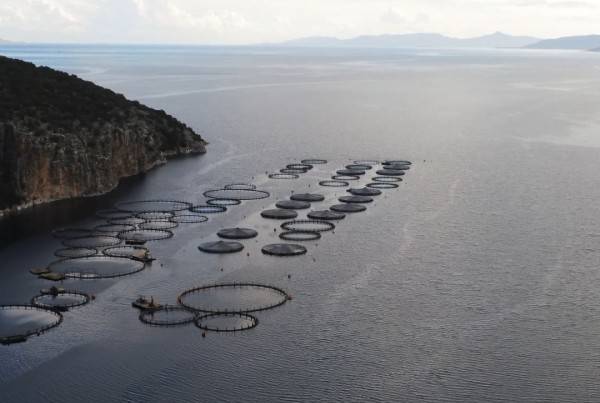The latest edition of the CinemAmbiente festival, an international film festival held in Turin from 4 to 9 June, presented many interesting films.
Among them, the Italian documentary Until the End of the World, produced by Francesco De Augustinis, attracted considerable interest from the audience and was also awarded a special commendation by the jury for the international documentary contest.
This narration addresses an interesting and undervalued theme, the aquaculture sector and its environmental and social impacts.
De Augustinis would like to gain a deeper understanding of the functioning of this new sector, which has seen significant growth over the past 30 years. Aquaculture has risen in response to growing demand for fish products and the reduction in the amount of fish caught.
Some international organisations, such as the Food and Agriculture Organization of the United Nations (FAO), have suggested that aquaculture could be a viable solution to provide the world with enough food. However, this documentary presents a different perspective, that aquaculture may not be the solution it is made out to be.
De Augustinis begins his work in Italy, a country renowned for its seafood dishes, particularly during the summer months along the coast. However, the vast majority of fish served in Italian restaurants comes from aquaculture, according to statistics.
The documentary then moves to Greece, the first country in Europe for fish produced through aquaculture.
It is interesting to note that a few firms owned by international investors have a significant influence on aquaculture production in this country.
In Greece, aquaculture is growing quickly because the government welcomes foreign investments in this sector.
However, it is perhaps worth noting that this growth is not being felt by the Greek population. This is an important consideration, as the marine environment and biodiversity are two areas that could potentially be affected by this growth.
Aquaculture is a method of fish farming that involves the use of large cages installed in the sea near the coast. These cages are used to breed a large quantity of fish. The fish are kept in very small spaces and are fed a diet of feed that is fed directly into the cage.
In this context, the proliferation of diseases is constant.
The main contradiction of aquaculture is that fish need to receive feed based on fishmeal since fish are carnivorous. In practice, fish are grown using raw materials from other fish, which is a paradox that is highlighted in the documentary.
For this reason, the journey of De Augustinis continues going to Senegal, an important spot for this topic.
In the African country, as well as in other low-income countries, international companies are building factories for the production of fishmeal.
Fishmeal is a valuable product, made from pelagic fish, which are small species that are very common in the seas. These fish are an important source of food for local populations. In these countries, companies are buying pelagic fish to produce meals to export to aquaculture production sites in Europe.
Some Senegalese inhabitants have expressed concern that this kind of commerce is a manifestation of colonial exploitation.
“Until the End of the World” offers a compelling insight into the main elements of aquaculture production and its many paradoxes.
In practice, a new sector built to provide world population with cheap and sustainable food has become a sector based on exploitation and environmental degradation. The premises of aquaculture development were good, but the present situation of this kind of intensive farming is damaging the environment and human health.
In practice, a new sector built to provide the world’s population with affordable and sustainable food has unfortunately become a sector based on exploitation and environmental degradation.
The premises of aquaculture development were promising, but the present situation of this kind of intensive farming is having an adverse impact on the environment and human health.

